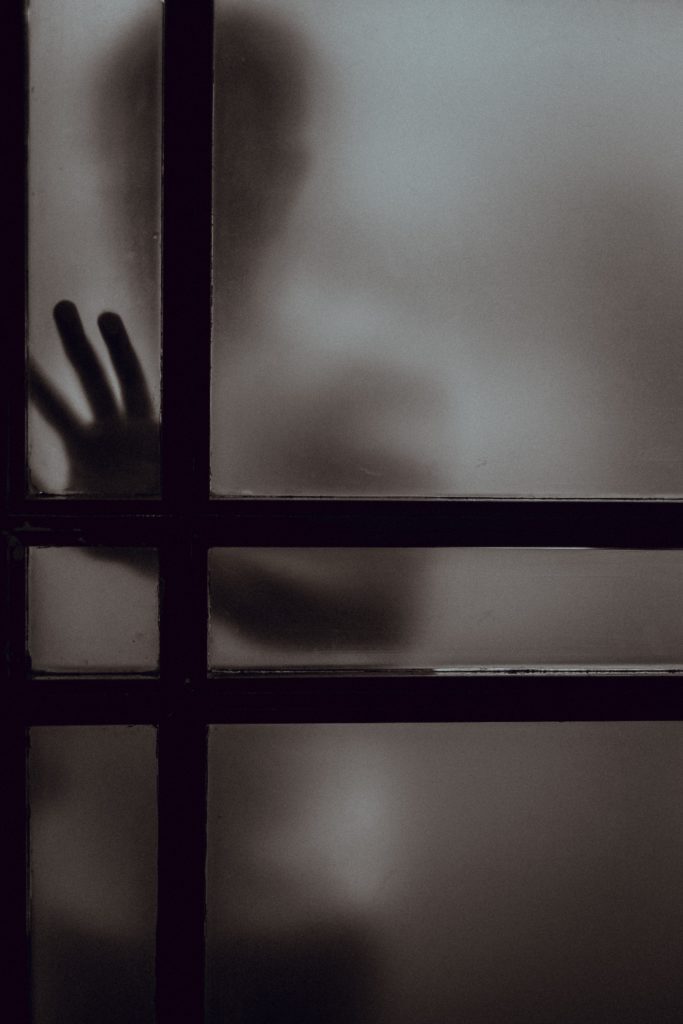
Feature By: Jeff J. Horn, Esq.
Since 1991, New Jersey has been a leader in the effort to prevent domestic violence. A domestic violence restraining order that enters in New Jersey is permanent. It is extremely difficult for a Defendant who is found to have committed an act of domestic violence to have the restraining order lifted. The consequences of a finding that a Defendant has committed an act of domestic violence, and the entry of a Final Restraining Order, are profound, including: a permanent ban on communication or contact with the Plaintiff, payment of a fine, potential payment of the Plaintiff’s legal fees, ban from ever holding a firearms ID card or owning any weapons, and placement of the Defendant’s name on the national domestic violence registry. The Defendant will have travel rights impacted and may lose the right to maintain or seek certain employment. It is within this framework, and a growing body of case law, that our judges are challenged day after day in case after case to fairly adjudicate domestic violence cases.
New Jersey Superior Court and Municipal Court judges are appointed by government officials. Superior Court judges are appointed by the governor and approved by the New Jersey Senate. They serve an initial seven-year term and, if they receive tenure, can serve until age 70 on good behavior. Municipal Court judges are appointed by the various governing bodies. They receive three-year terms. Most judges do not come out of their law practice with loads of domestic violence hearing experience. Judges come from a broad range of backgrounds, most of which have scant domestic violence experience. Unless exposed to domestic violence cases in a prosecutor or public defender type role, judges are unfamiliar with domestic violence cases. After their appointment, judges are assigned to various divisions, including the Chancery Division, Family Part. It is quite common for newer judges to be assigned to Family Court. In New Jersey, judges receive exposure to domestic violence training prior to hearing any family court case through the Comprehensive Judicial Orientation Program. Included in that training is training in domestic violence. The overall training can span five days and at least one of the nine modules address domestic violence. Judges sitting in Family Court have an annual training in domestic violence. All new judges are assigned an experienced Family Court judge to mentor and guide the newly appointed Family Court judge. If a judge is reassigned from another Division, the judge will attend a half-day program on domestic violence.
It is clear that the New Jersey Judiciary takes seriously the issue of training up judges that sit on domestic violence cases. Indeed, it appears that all states have programs for training judicial staff on domestic violence issues according to the National Council of Juvenile and Family Court Judges.
How, then, has New Jersey made national news arising out of the conduct of embattled New Jersey Superior Court judge, John F. Russo Jr.? The news media has come to refer to him as the “close your legs” judge. During a domestic violence hearing, including allegations of sexual assault, the judge told the Plaintiff to “close your legs.” He later asserted that he did not mean that she should close her legs to avoid a sexual assault. The New Jersey Supreme Court is amid debating what discipline will be handed down to the judge. Tellingly, the Chief Justice of the New Jersey Supreme Court, Stuart Rabner, asked the judge’s attorney “would an informed, objective member of the public have confidence in the judicial system with Judge Russo, if there is a period of discipline, if he were to preside over family matters of this nature again?” Why should the court even have to go through all of this? Certainly, the judiciary trains the judges on the law and handling these delicate matters, but they cannot train one’s mindset. In Canada, a judge asked an alleged rape victim “why wouldn’t you just keep your knees together?” That judge at least had the decency to resign.
I believe we enjoy a fine system for appointing judges. They are not required to stand for election. I believe that electing judges tends to bring out an exaggerated set of promises and that bias may creep into the judge’s decisions, particularly on sensitive matters involving the community, children, or fine points in a criminal case. Judges are vetted through numerous steps. Indeed, Judge Russo served as an Administrative Law Judge before ascending to the Superior Court.
There is something unique about the pace and context of many domestic violence cases that make them inherently difficult to adjudicate. As asserted above, most judges are not handling domestic violence cases in their law practice. The pace of the cases is structured in part by the law. Domestic violence cases are supposed to be resolved within 10 days of the entry of the Temporary Restraining Order. This strains court staff and judges. The 10-day requirement can be relaxed for due process purposes – getting an attorney, having a witness available, and being ready to proceed. The Temporary Restraining Order stays in place while the case is rescheduled. Pace also refers to the pace of the parties and how they communicate, and how they communicate with one another. Although contact is barred, the litigants in a domestic violence case are sitting within a few feet of one another during the hearing. Most people are nervous in court to begin with. In a domestic violence case, you are sitting near your alleged abuser with whom you have a relationship, perhaps a marriage, perhaps children. If you are the Defendant, perhaps falsely accused, your rights are about to be severely clipped if the Plaintiff is persuasive enough. Court staff will schedule perhaps dozens of matters to be adjudicated on a given day. Add that time pressure to the judges’ experience – it can all feel like a fire hose. I have the good fortune of having handled hundreds of domestic violence cases. I have watched the cases before mine and after mine in order to develop a decent sense of what the judge experiences. All the training and mentoring in the world is no substitute for real experience. Our court system assigns judges to handle domestic violence cases differently from vicinage to vicinage. Your domestic violence case may be handled by the same judge handling your divorce, or not. Your domestic violence judge likely has many other duties, including child support cases, warrants, emergency cases, divorce cases, post-divorce cases, and cases involving unmarried couples. The same judge that handles domestic violence matters may be dealing with juvenile matters or DCPP matters. All judges have a lot on their plate. Some judges may look upon their service in the Family Part as temporary duty and, while they certainly attempt to judge fairly and compassionately, they would not mind a tap on the shoulder and a transfer to a different Division.
I’ve wondered at times why judges would not grant Final Restraining Orders even on the borderline cases. What if you deny a Restraining Order to a Plaintiff with a borderline case and the matter escalates to severe violence or even murder? I asked some judges who understand that a false negative or a denial on the Restraining Order that later escalates into something worse is always a risk. They take very seriously their duty to afford the Defendant due process and recognize the grave consequences to a Defendant who falsely accused and slapped with a domestic violence Final Restraining Order and exposed to all the liabilities that arise therefrom.
Can we do more to train our domestic violence judges? I believe the answer is yes.
Judges need to be exceptional detectors of credibility. Reading even the most up-to-date behavioral articles on lie and truth detection will leave one feeling a bit hollow. Even the best credibility detectors are wrong as much as they are right. Only experience, coupled with peer review, will improve, or at least unify, results across the dozens and dozens of judges that handle Family Court matters. I have never heard of a module in Family Court whereby teams of judges sit and listen to or watch a video of actual domestic violence cases and analyze the rulings. With the advantage of the CourtSmart system, everyone in the judiciary has access to, and can even listen to, court proceedings from their desktop computer. As new judges come into the Family Division and are faced with an army of litigants marching in day after day, it would be the height of best practices to analyze the judge’s rulings. This is not in any way to second-guess or bash our judges. Rather, let the judges listen in together and debate and establish baselines for assessing credibility. Establish baselines for determining if a victim needs protection. Every domestic violence case has competing results. One is to give the victim/Plaintiff an opportunity to present a case that asserts the legal rule that was violated and the need for protection. The second mission is to ensure that the Plaintiff has an opportunity to cross-examine and confront the abuser and allow the Defendant to present a defense (this is known as due process). The leap needed to upgrade our rookie domestic violence judges to Hall of Famer’s is at the fingertips of everyone in the judiciary. A regular, nurturing, and productive peer review system is the key to moving forward and assisting judges who want so sincerely to do right by domestic violence litigants. Would this system have prevented the “close your legs” judge from making headlines? I believe it could have. Peer review of this judge’s earlier interactions may have guided him to keep his personal eccentricities out of the courtroom. If not, his tendencies would certainly have given rise to a little closer watch on his cases and a closer listen to the goings on in his courtroom.

